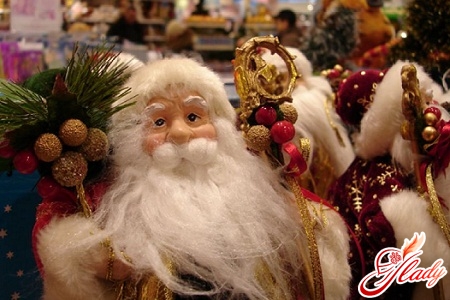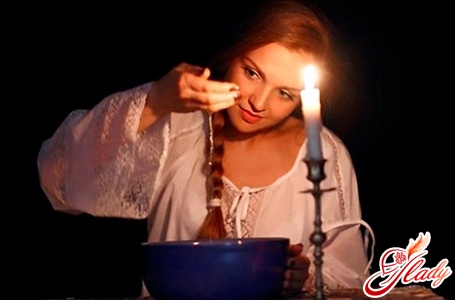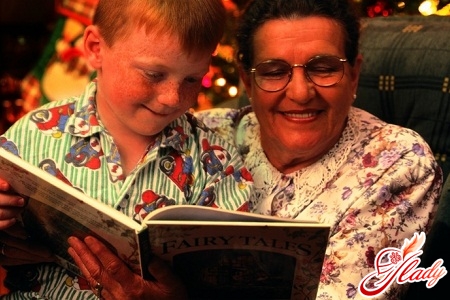 Among all the holidays, New Year's Eveis the most anticipated and the most grandiose among all the peoples of the world. And, if you make a rating of celebrations, then New Year is the undisputed leader, besides, it is the oldest of all known holidays. The tradition of celebrating the New Year appeared thanks to the observation of ancient people, they noticed that everything in the world develops cyclically: the lunar month grows and ages, and nature, reviving every spring, certainly grows old and dies with the onset of winter. Cyclicity and regularity gave rise to rituals, which later became New Year traditions. Rituals personified the death of the old world with all its troubles and the birth of a new one, which allowed to start everything from scratch - ancient people believed that the creation of the world occurs annually. Depending on the climate, each nation had its own date for the New Year, but the meaning of the rituals, which gradually took on a festive meaning, was unchanged - it was necessary to see out and forget the old year along with all the evil and adversity in order to give the opportunity for the new one to be born. But, despite the fact that several millennia have passed since the time of rituals and dances around the fire, on New Year's Eve the same wishes for new successes and new happiness are heard.
Among all the holidays, New Year's Eveis the most anticipated and the most grandiose among all the peoples of the world. And, if you make a rating of celebrations, then New Year is the undisputed leader, besides, it is the oldest of all known holidays. The tradition of celebrating the New Year appeared thanks to the observation of ancient people, they noticed that everything in the world develops cyclically: the lunar month grows and ages, and nature, reviving every spring, certainly grows old and dies with the onset of winter. Cyclicity and regularity gave rise to rituals, which later became New Year traditions. Rituals personified the death of the old world with all its troubles and the birth of a new one, which allowed to start everything from scratch - ancient people believed that the creation of the world occurs annually. Depending on the climate, each nation had its own date for the New Year, but the meaning of the rituals, which gradually took on a festive meaning, was unchanged - it was necessary to see out and forget the old year along with all the evil and adversity in order to give the opportunity for the new one to be born. But, despite the fact that several millennia have passed since the time of rituals and dances around the fire, on New Year's Eve the same wishes for new successes and new happiness are heard.
The history of the New Year holiday in Russia
In Rus', New Year began to be celebrated in March,on the day of the vernal equinox, since it was believed that on this day winter finally retreats, and new life comes into its own. It was in March that nature woke up after a long winter and began a new life cycle. But then the New Year celebrations were moved first to March 1 - this happened after the adoption of the Orthodox faith and the baptism of Rus; and in the 15th century, the New Year began to be celebrated on September 1, timing the first day of the new year to the day of Semyon the summer-guide, and the entire following month, according to biblical canons, had to be spent resting from worldly affairs and everyday worries. But the new date did not last long and in 1699 Peter the Great issued a decree "... henceforth to count the years ... from January 1 from the Nativity of Christ." And after the decree of the tsar, the New Year became not only a church, but also a secular holiday, and Peter personally ensured that its celebration was no worse than in Europe. Folk traditions and rituals have survived to this day, despite frequent reforms and date changes. The main thing is that the holiday has not lost its original purpose - the opportunity to start life with a clean slate. Orthodox Christians still celebrate the New Year on September 1 or September 14 according to the Julian calendar - at this time, churches and cathedrals hold New Year services. And although the Julian calendar has not been used for a long time, thanks to it, Russia has not one, but three New Years - the state New Year, which is celebrated on January 1, the Orthodox New Year, and the Old New Year, which is celebrated 2 weeks after the official one.
History of the New Year holiday abroad
How has New Year changed in other countries?The date of the New Year celebrations is probably the most stable for Jews, which cannot be said about France, where the official date of the New Year was also the date of the Great French Revolution. The New Year date for Jews has remained stable due to the peculiarities of the Jewish nation - they are too loyal to traditions and although they have four New Year dates, they have remained unchanged since the Old Testament. Two New Years celebrate the new year for animals and trees, and two holidays are directly related to people. The New Year, celebrated in Nisan, is timed to coincide with the exodus of the Jews from Egypt in 1676 BC and is the official holiday of the birth of the entire Jewish people. And the New Year Rosh Hashanah is celebrated in the month of Tishrei (September) and represents the creation of the whole world, and the month following the holiday is considered the month of heavenly judgment. And only Buddhists and Hindus do not have a fixed date for the New Year celebrations, since their New Year is determined by the lunar calendar. To sum it up, we can say that each nation has its own traditions, but this only makes the New Year holiday more colorful. We recommend reading:









